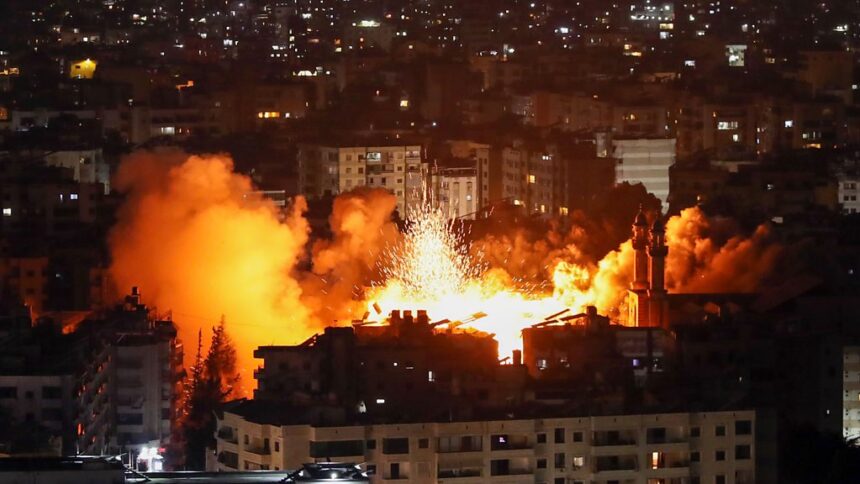Introduction: Rising Tensions on the Eve of a Sacred Festival
On the eve of Eid Al-Adha, one of the most significant religious celebrations in Islam Israel strikes, Israel launched air strikes targeting Hezbollah’s alleged drone production facilities in southern Beirut’s Dahieh district. This strike marks a sharp escalation despite a six-month ceasefire, raising concerns about renewed conflict in an already volatile region.
The Details of the Air Strikes
The Israel Defense Forces (IDF) confirmed the targeted strikes were aimed at underground facilities in the southern suburbs of Beirut where they identified Hezbollah units producing “thousands” of drones. Israel accuses these drone operations of being funded by Iranian-backed terrorist groups and central to Hezbollah’s military activities Israel strikes.
Prior to the attack, Israeli military spokespeople issued evacuation warnings to residents in neighborhoods including Hadath, Haret Hreik, and Borj el-Barajneh, highlighting the proximity of civilian areas to Hezbollah infrastructure.
Political and Diplomatic Reactions
Lebanese Prime Minister Nawaf Salam condemned the strikes as “systematic and deliberate attacks” on Lebanon’s stability, security, and economy, emphasizing the timing just before the holidays and the tourist season. Lebanese President Joseph Aoun also described the strikes as a “flagrant violation of an international accord.”
The United Nations Special Coordinator for Lebanon expressed concern over the renewed panic and called for diplomatic efforts to prevent further escalation. Meanwhile, Israel’s Defense Minister Israel Katz praised the military operation’s “perfect execution,” holding the Lebanese government accountable for ceasefire violations.
Background: Israel-Hezbollah Relations and Recent Conflicts
Israel and Hezbollah, an Iranian-backed militant group based in Lebanon, have a long history of conflict. The last major flare-up occurred between 2023 and 2024, lasting 13 months with thousands killed and over a million displaced in Lebanon.
The ceasefire agreed upon in late November 2024 saw Israel withdraw its forces and Lebanese troops taking over policing in southern Lebanon. However, tensions have remained high with multiple Israeli strikes on Hezbollah targets since, including attacks on missile stores and drone facilities.
Why Hezbollah’s Drone Program Matters
Hezbollah’s use of drones has been a key factor in its recent military tactics against Israel. The IDF claims these drones allow Hezbollah to conduct precision strikes, surveillance, and intelligence gathering, which Israel views as a direct threat to its national security.
Looking Ahead: Risks of Escalation
With ongoing military operations on both sides, the region remains at risk of escalation, especially given the symbolic timing of the strikes. Analysts stress the importance of renewed diplomatic efforts to uphold the ceasefire and prevent further violence that could destabilize Lebanon and wider Middle East peace prospects.
Conclusion: Vigilance and Diplomacy Needed Amid Rising Conflict
The Israel air strikes on Hezbollah’s Beirut facilities underscore the fragile security situation in Lebanon and Israel’s ongoing attempts to neutralize perceived threats. As regional powers and international organizations call for calm, the coming weeks will be critical in determining whether the ceasefire holds or conflict escalates.
For a deeper understanding of the historical context, see our detailed article on History of Israel-Hezbollah Conflicts and learn more about peace efforts in Understanding Middle East Ceasefires.
For the latest updates on the situation, visit Israel Strikes Beirut on Eid Al-Adha Eve.


